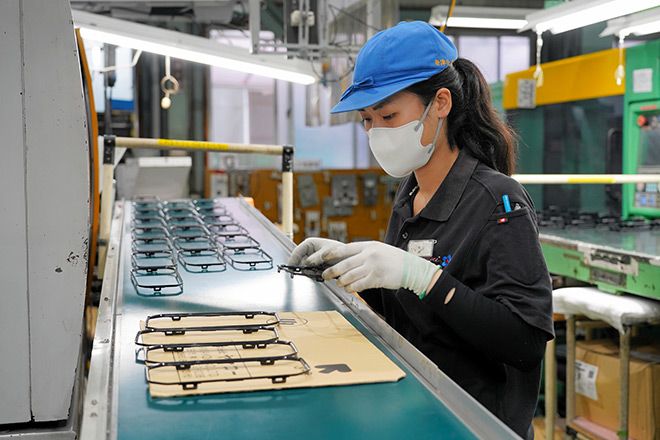The government plans to require a minimum employment period of two years in certain industries before foreign workers can change jobs under a new system that will replace the Technical Intern Training Program.
A proposal presented at an expert panel meeting on Sept. 17 said foreign workers would have to remain employed for two years before transferring to a different workplace by choice in eight designated sectors, compared with one year in the remaining nine other sectors.
Industries that would have this requirement are nursing care; industrial goods manufacturing; construction; shipbuilding and marine industry; automobile maintenance; food and beverage production; food service; and resource recycling.
The rationale is that these fields call for a longer period for acquiring necessary skills.
The Cabinet is expected to approve the plan by the end of the year following discussions at the expert panel.
However, concerns have been raised that the two-year requirement could contradict the nation’s labor legislation and fail to adequately protect the rights of international workers.
Under interpretations of the Civil Code and other laws, contract employees are generally allowed to resign after working for more than one year.
In January, Keizai Doyukai (Japan Association of Corporate Executives) called for a one-year employment period across all sectors, saying that inconsistencies with domestic labor laws could discourage foreign nationals from seeking employment in Japan.
Japan plans to start the training and employment program, which aims to train foreign nationals and encourage them to work in the country for extended periods, in April 2027 as a replacement for the much-criticized Technical Intern Training Program.
Under the existing program, foreign interns are, in principle, not allowed to change jobs for three years, leading many to abscond from abusive working conditions.
To address the problem, the new program will allow for workplace transfers in cases of “unavoidable circumstances,” such as violence or harassment.
In addition, workers can transfer at their own request if certain conditions are met.
In the eight sectors that require two years’ of employment before transfers, employees are to review working conditions, such as providing pay increases, from the second year of employment onward.
Under the government proposal, the remaining nine sectors, including accommodations, agriculture, fisheries and forestry, will require only one year of employment before allowing transfers.
The workplace transfer system is a key pillar of the training and employment program to safeguard the rights of foreign workers.
The government’s expert panel initially proposed a uniform one-year period for all sectors, seeking to guarantee foreign workers the same rights as Japanese contract employees.
However, the ruling Liberal Democratic Party and small regional businesses argued that allowing transfers after a short period would lead to a talent drain to urban centers.
As a result, the proposal was revised to allow sector-specific minimum employment periods ranging from one to two years.

